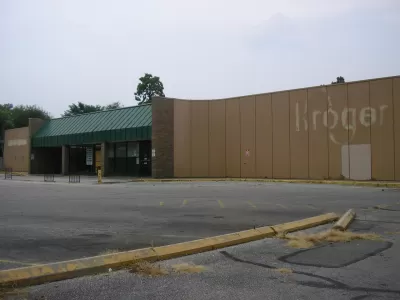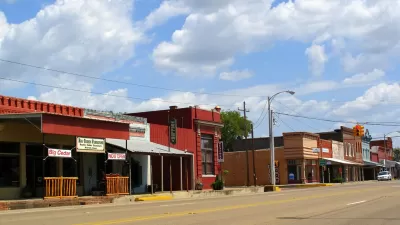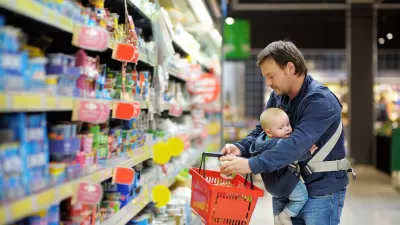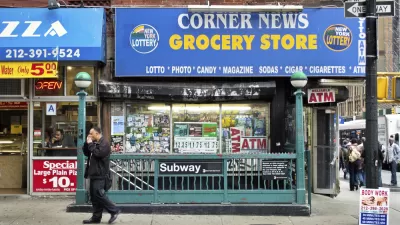Supermarket closings have turned parts of the city into food deserts. As a result, residents lack access to fresh food and suffer health and economic consequences.

Bailey Loosemore writes that food insecurity in Louisville, Kentucky, is affecting more people, particularly the city’s low-income and most vulnerable residents. In 2015, 44,000 Louisville residents did not have the transportation or financial resources they needed to get healthy, affordable food, and the problem has spread as grocery stores across the city have closed down.
As a result, residents spend time and money traveling to and from stores in other areas. If they cannot reach a store, they have to purchase food from a discount or convenience store or go hungry.
The lack of access to fresh food leads to an increase in chronic health problems and healthcare costs, part of a cycle people fall into when their options are limited, says Loosemore:
First, a food-insecure person is forced to make unhealthy choices if they want to eat regularly, often turning to cheaper, high-calorie foods when healthier items aren't available. A reliance on unhealthy food leads people to develop diet-related illnesses, such as diabetes and obesity. And in turn, people can become unable to work — further restricting their food budget.
Smaller, independent grocery stores have been replaced by chain stores that favor locations where they can put in supersized stores that turn over bigger profits. "For residents with cars and credit cards, the larger stores offer a one-stop-shop for everything from freshly sliced deli meats to packaged meal kits. But for residents without transportation, a trip to the grocery can become a daylong effort," reports Loosemore.
She notes that food banks and community health organizations are trying to fill in the gaps by identifying residents struggling with food insecurity and connecting them with resources.
FULL STORY: Sorry, we're closed: How everyone is hurt when grocery stores shut down

Planetizen Federal Action Tracker
A weekly monitor of how Trump’s orders and actions are impacting planners and planning in America.

Maui's Vacation Rental Debate Turns Ugly
Verbal attacks, misinformation campaigns and fistfights plague a high-stakes debate to convert thousands of vacation rentals into long-term housing.

San Francisco Suspends Traffic Calming Amidst Record Deaths
Citing “a challenging fiscal landscape,” the city will cease the program on the heels of 42 traffic deaths, including 24 pedestrians.

Amtrak Rolls Out New Orleans to Alabama “Mardi Gras” Train
The new service will operate morning and evening departures between Mobile and New Orleans.

The Subversive Car-Free Guide to Trump's Great American Road Trip
Car-free ways to access Chicagoland’s best tourist attractions.

San Antonio and Austin are Fusing Into one Massive Megaregion
The region spanning the two central Texas cities is growing fast, posing challenges for local infrastructure and water supplies.
Urban Design for Planners 1: Software Tools
This six-course series explores essential urban design concepts using open source software and equips planners with the tools they need to participate fully in the urban design process.
Planning for Universal Design
Learn the tools for implementing Universal Design in planning regulations.
Heyer Gruel & Associates PA
JM Goldson LLC
Custer County Colorado
City of Camden Redevelopment Agency
City of Astoria
Transportation Research & Education Center (TREC) at Portland State University
Jefferson Parish Government
Camden Redevelopment Agency
City of Claremont





























